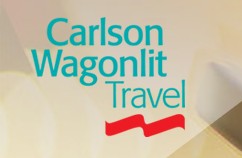Paris – A new study by Carlson Wagonlit Travel (CWT) reveals that mobile bookings are set to climb steeply over the next decade, reaching 25% of online transactions by 2017.
CWT’s research also predicts that mobile bookings will more than double in the next two years.
According to the study, it took up to eight years for online booking tools to reach the same level of activity that mobile is expected to achieve in the next three year
The survey was based on responses from a questionnaire of 173 travel managers worldwide on their company’s use of mobile devices and apps, policy and expectations. The respondents represented aerospace and defence, healthcare, life sciences, pharmaceutical companies and other sectors with an average corporate travel spend of US$75 million.
This rising trend will influence not only the entire traveller experience but will shift how travel managers control their travel programmes, using the latest mobile technology to help support and connect to their travellers.
However, the report added that the travellers and travel managers do not expect mobile to drive down travel costs significantly. Instead the key benefits rising from this trend are ease in doing business, productivity and traveller wellbeing.
The study also revealed that 62% of travellers are currently carrying company smartphones and 56% of companies surveyed already, or plan to, have a BYOD (bring your own device) policy.
Globally, travel managers also consider the potential impact of mobile on the travel programme to be high, rating it 6.8 overall on a scale of 1 to 10.
Looking to the Asia Pacific region, CWT’s research shows:
Travel alerts are very important to travellers, who rank them the third most important mobile service feature after flight status updates and itinerary information.
Travellers in Asia Pacific, along with those in Latin America, place more importance on mobile booking on-the-go (62% consider it important or critical), compared with North America (55%) and EMEA (45%).
Mobile booking will rapidly outpace the kind of growth seen in online booking in the early 2000s, with some major differences between countries due to varying levels of smartphone or tablet penetration, as well as cultural differences. For example, adoption of mobile booking apps could be influenced by the self-service booking culture, which is widespread in North America and Europe, but less so in Asia Pacific where travellers more often delegate this task to assistants such as in Singapore and Hong Kong.
David Moran, CWT executive vice president, global marketing & enterprise strategy, said the company would launch new mobile services, such as mobile booking through CWT To Go, later this year to meet with the shift in mobile bookings.
.“While 80% of travellers and travel managers told us they want a one-stop-shop app so they don’t have to juggle between best-of-breed consumer apps, there isn’t an app on the market today that answers all their needs, and that’s what we’re excited about – building on CWT To Go to create the corporate travel app that appeals to both travel managers and travellers.” Source: WIT
• Download/view the full report here.

